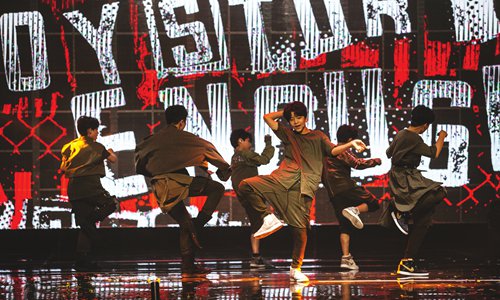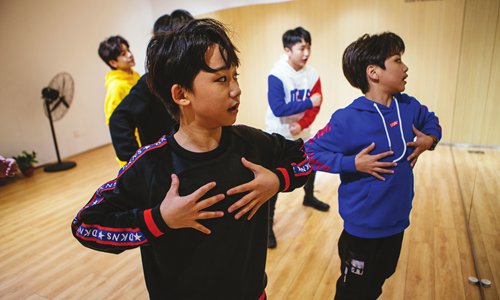
From the People’s Daily app.
This is Story in the Story.
The popularity of very young singers and dancers has hit an all-time high in China. In fact, the national enthusiasm for idols is so high that 2018 has been dubbed China's "Year One for Idols."
More than 20 Chinese idol groups made their official debuts this year, including many underage ones.
In South Korea, the trend began in 1996, when HOT, its members 16 to 18 years old, became the first young K-pop idol group.
Now, more young people are chasing their dreams of becoming idols.
According to a report by South Korean education television, the most popular dream job for teenagers in the country is now idol, displacing the previous top choices of scientist, teacher and pilot.
South Korea, after 22 years of developing its teen idol industry, is doing some soul searching.
Many of the idols are not well-educated, especially when it comes to sex education and values, said the report.
In China, the worries are the same.
Today's Story in the Story will look at how teenage boy bands garner increasing international fan base for Chinese pop culture, and why Idols need to have more balanced lives and send proper messages to impressionable young people.

Boy Story performs "Enough" in Beijing on October 24. (Photo: GT)
Before being selected into groups and officially debuting, youngsters learn and train in entertainment companies, and are called trainees.
Zhang Yichi, a 22-year-old from Southwest China's Guizhou Province, is now a private trainee in Beijing. Every day he undergoes training on dance and singing.
"It is really hard… My parents and friends had told me not to do this," he said.
"But I told myself to work hard! Maybe if I had looked for a job after graduation, I could have been in an office with a stable salary, but it is not what I like to do," he said.
One of the newer Chinese idol bands is Boy Story. It is made up of six young dancers aged 11 to 14.
The boys, like other children of their age, go to school during the day time. But after school, they practice and do activities involving their idol identities.
"If I was not an idol, I would be a soccer player for the national team," said Mingrui, 12, from Boy Story. "I'd be a pilot," said Shuyang, 11 and the youngest.
"We want to present Chinese music and promote Chinese culture to the world," said fellow band member Xinlong.
Zhang Hailun, a 22-year-old from North China's Hebei Province, is a big fan.
Zhang, who graduated from an American college in June, first discovered the group in March.
"At first I found their videos on YouTube. I did not expect them to be a Chinese group, let alone this good," she said.

Members of Boy Story are practicing in the training room on October 24. (Photo: GT)
While more entertainment agencies and children with idol dreams are seeking to share a piece of the pie, bigger companies that are more professional and international are also joining the competition for producing young idols.
Boy Story are co-produced by China's Tencent Music Entertainment and Korean JYP Entertainment (JYP), two entertainment giants.
JYP, founded in 1997 in Seoul, has maintained popular boy-groups including 2AM, 2PM, GOT7 and DAY6.
Boy Story is their new production targeting the young idol market and the Chinese market.
Through Boy Story, the companies hope to transplant the idol machine of K-pop to China from South Korea.
However, Shi Wenxue, a Beijing-based film critic, said there could also be some problems that could bring negative effects. This is because the driving force behind the idols are commercial imperatives and the need to entertain.
He noted that young fans and idols all need positive and active guidance, and this is the responsibility of families, schools, society and government.
Meanwhile, cultural experts have called for enhancing control over the commercial activities of those underage idols, to avoid the young generation being influenced by subversive subcultures.
(Produced by Nancy Yan Xu, Brian Lowe, Lance Crayon, Elaine Yue Lin and Grace Xinyi Song. Music by: bensound.com. Text from Global Times.)


